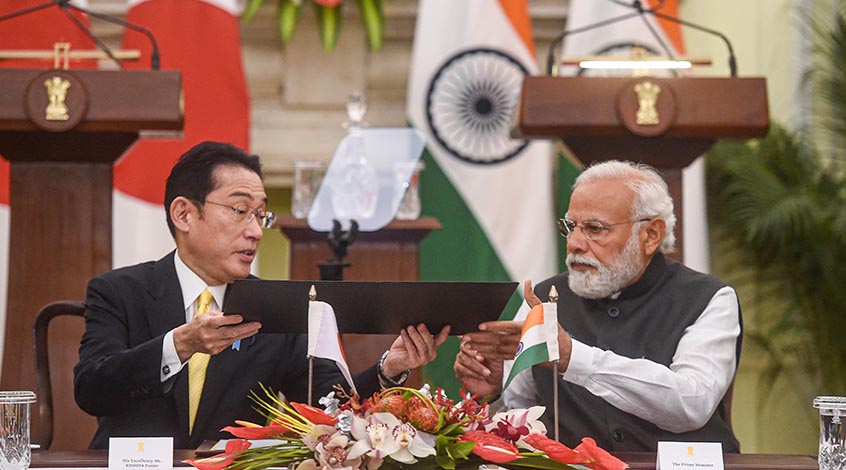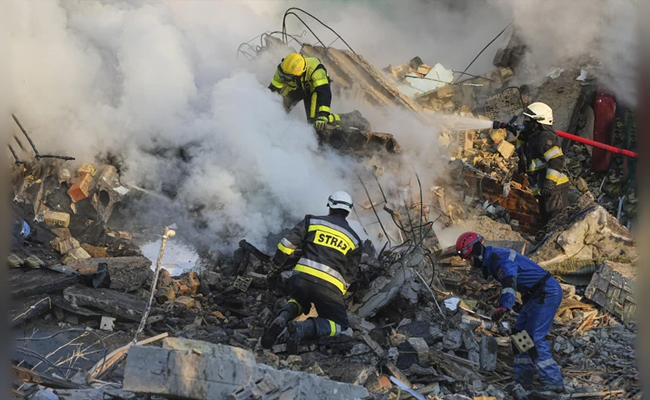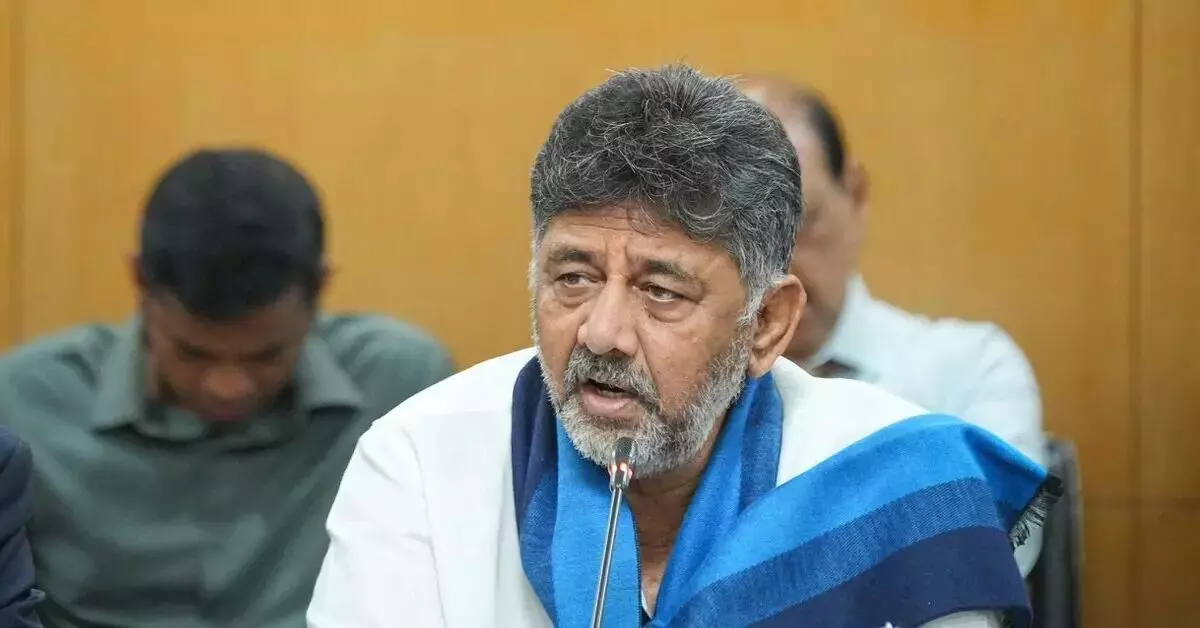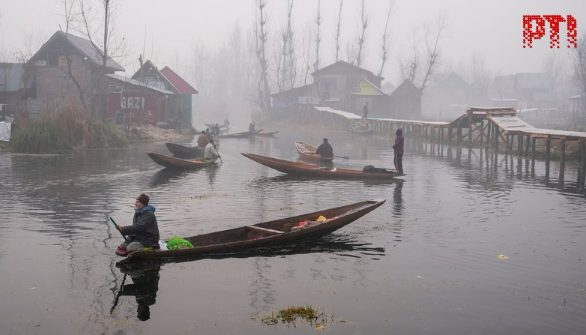New Delhi, Mar 19: Japanese Prime Minister Fumio Kishida on Saturday described the Russian invasion of Ukraine as a "very serious" matter, saying it has "shaken" the roots of international order.
The visiting leader made the comments in the presence of Prime Minister Narendra Modi at a joint media briefing after the 14th India-Japan summit here.
A joint statement said that Modi and Kishida, in their talks, called for an immediate cessation of violence in Ukraine, pitched for resolution of the conflict through dialogue besides underscoring the importance of safety and security of nuclear facilities in that country.
It said the two leaders expressed serious concern over the conflict and assessed its broader implications, particularly to the Indo-Pacific region, as well as the unfolding humanitarian crisis in Ukraine.
"We discussed the situation in Ukraine. The Russian attack on Ukraine is a very serious matter that has shaken the roots of the international system. We need to approach the matter with a strong resolve," Kishida said at the media briefing.
"I told Modi that one-sided efforts to change status quo by force can't be allowed in any sector. We both agreed on the need for a peaceful solution to all conflicts on the basis of international law," he added.
The joint statement said Modi and Kishida reiterated their call for an "immediate cessation of violence and noted that there was no other choice but the path of dialogue and diplomacy for resolution of the conflict."
While Japan has been severely critical of Russia for its invasion of Ukraine, India has been pitching for resolution of the conflict through dialogue and diplomacy.
"The prime ministers expressed their serious concern about the ongoing conflict and humanitarian crisis in Ukraine and assessed its broader implications, particularly to the Indo-Pacific region," the joint statement issued after the talks said.
"They emphasised that the contemporary global order has been built on the UN Charter, international law and respect for sovereignty and territorial integrity of states," it said.
It said the leaders underscored the importance of the safety and security of nuclear facilities in Ukraine and acknowledged active efforts of the International Atomic Energy Agency (IAEA) towards it.
"The leaders affirmed that they would undertake appropriate steps to address the humanitarian crisis in Ukraine," it added.
Modi and Kishida highlighted their commitment to working in tandem towards a peaceful, stable and prosperous world, based on a rules-based order that respects the sovereignty and territorial integrity of nations.
They also emphasised the need for all countries to seek peaceful resolution of disputes in accordance with international law without resorting to threat or use of force or any attempt to unilaterally change the status quo.
"In this regard, they reaffirmed their common vision for a free and open Indo-Pacific, free from coercion," the joint statement said.
"They shared the view that the economies of both countries in such a world would be powered by robust bilateral investment and trade flows through diversified, resilient, transparent, open, secure and predictable global supply chains that provide for economic security and prosperity of their peoples," it said.
Reaffirming that the two countries would continue to work together to realise the shared objectives, they resolved to further advance the India-Japan Special Strategic and Global Partnership.
The leaders emphasised that India and Japan, as two leading powers in the Indo-Pacific region, had a shared interest in the safety and security of the maritime domain, freedom of navigation and overflight, unimpeded lawful commerce and peaceful resolution of disputes with full respect.
"They reaffirmed their determination to continue prioritising the role of international law, particularly the United Nations Convention on the Law of the Sea (UNCLOS), and facilitate collaboration, including in maritime security, to meet challenges against the rules-based maritime order in the East and South China Seas," the statement said.
They emphasised the importance of non-militarisation and self-restraint.
"They further called for the full and effective implementation of the Declaration on the Conduct of Parties in the South China Sea and the early conclusion of a substantive and effective Code of Conduct in the South China Sea in accordance with international law, especially UNCLOS, without prejudice to the rights and interests of all nations including those not party to these negotiations," it said.
Let the Truth be known. If you read VB and like VB, please be a VB Supporter and Help us deliver the Truth to one and all.
Kyiv (AP): Eight people were killed and 27 wounded in a Russian missile strike on port infrastructure in Odesa, southern Ukraine, late on Friday, Ukraine's Emergency Service said on Saturday morning.
Some of the wounded were on a bus at the epicentre of the overnight strike, the service said in a Telegram post. Trucks caught fire in the parking lot, and cars were also damaged.
The port was struck with ballistic missiles, said Oleh Kiper, the head of the Odesa region.
ALSO READ: 'Have not received complaint yet': Delhi Police on assault by off-duty Air India Express pilot
Elsewhere, Ukrainian forces hit a Russian warship and other facilities with drones, Ukraine's General Staff said in a statement on Saturday.
The nighttime attack on Friday hit the Russian warship “Okhotnik,” according to the statement posted to the Telegram messaging app.
The ship was patrolling in the Caspian Sea near an oil and gas production platform. The extent of the damage is still being clarified, the statement added.
A drilling platform at the Filanovsky oil and gas field in the Caspian Sea was also hit. The facility is operated by Russian oil giant Lukoil. Ukrainian drones also struck a radar system in the Krasnosilske area of Crimea, which Russia illegally annexed from Ukraine in 2014.





